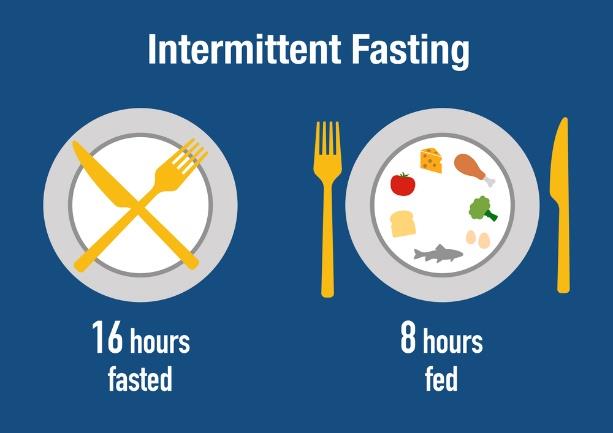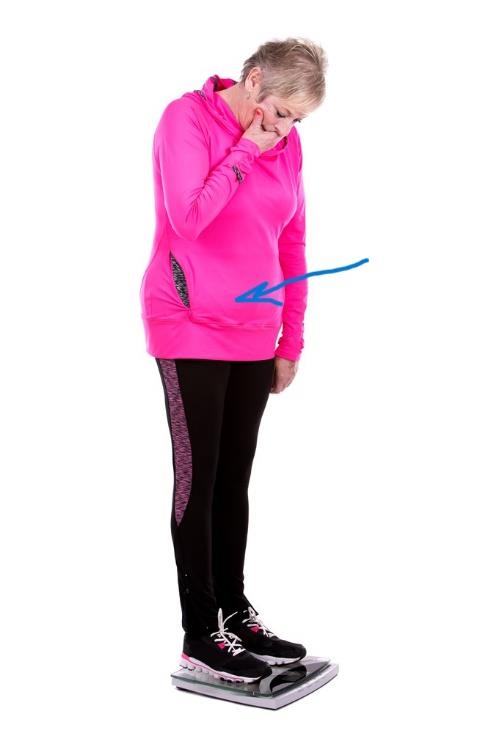Intermittent Fasting Is Working...So Far
 Intermittent Fasting (IF) is a popular eating strategy that involves restricting when
and how often you eat, and it has less of an emphasis on what or how much you eat.
Until I started IF, the only thing that worked for me was to go cold turkey on sugary
treats like cookies (my weakness), chocolate, candy in any form, and all desserts.
It takes me 3-4 days to get over the intense craving of my sugar addiction and then
I feel great…until the next social event, or sleepless night, or the need to reward
myself overtakes my willpower.
Intermittent Fasting (IF) is a popular eating strategy that involves restricting when
and how often you eat, and it has less of an emphasis on what or how much you eat.
Until I started IF, the only thing that worked for me was to go cold turkey on sugary
treats like cookies (my weakness), chocolate, candy in any form, and all desserts.
It takes me 3-4 days to get over the intense craving of my sugar addiction and then
I feel great…until the next social event, or sleepless night, or the need to reward
myself overtakes my willpower.
It’s no secret that as we age it gets harder to lose weight and requires a different approach. As a female approaching 80, I have not been immune to that phenomenon. I was born with good genes that allowed me to eat almost anything I wanted until I was told to stop taking estrogen at about age 67. One of the most common unpleasant consequences of menopause at any age is difficulty losing weight.
Confessions
At my maximum height of 5’ 31/2” and at age 19, I only weighed 105 lbs. It’s painful to be so honest, but I gained 15 lbs. (“the freshman 15”) in college, and about 10 more that stayed after my first pregnancy. After five pregnancies with babies close to or over 8 lbs, I was still able to return to a weight of between 130-135 lbs, although too much of that weight was/is in an annoying, not-so-little ball right on the front of me. My pants were two sizes bigger than my tops.
I was told by a doctor that I had no stomach muscles left. This made me feel better about exercise not making my abdomen flatter, but it did not make me feel better about my shape. I slowly crept up to my maximum—so far—of 146 lbs. I’m shrinking in the wrong direction, with my height now only 5’ 1 ½”. I know I’m not obese, but my geriatric doctor sees my belly fat as a threat for a number of future health problems, like heart disease or diabetes. She always encourages me, and not in a kind way, to lose a few pounds. Thus, my decision to try IF.
"Intermittent Fasting is a popular eating strategy being studied in labs and practiced in kitchens across America. And it's more than a fad." Restricting your calories or mealtimes may have the potential for many benefits, such as weight loss and reduced risk of various diseases. We don't have much evidence, however, about intermittent fasting's effect on the health of older adults,” an article on the Harvard Health website tells us.
There are several methods of intermittent fasting. Some of the most popular are:
- Time-restricted eating: Eating within a specific time, like 12 – 8:00 pm, and fasting for the remaining 16 hours.
- Alternate-day fasting: Alternating between days of normal eating and days of fasting. On fasting days, you might consume only 500 calories or less.
- Whole-day fasting: Fasting for a full 24 hours once or twice a week.
- 5:2 diet: Eating normally for five days of the week and restricting calorie intake to 500-600 calories on two non-consecutive days.
- The warrior diet: Eating one large meal at night and fasting during the day.
- Spontaneous meal skipping: Skipping meals when you’re not hungry or don’t feel like eating.
After three weeks of practicing method #1, I lost 5 lbs. Not a lot maybe, but a healthy amount for an elderly person of my height and build.
 I hope to lose at least 5 more. What I have done is skip breakfast—no longer thought
to be the most important meal of the day—eat lunch (including a cookie) about 12:30,
and dinner between 6:00 and 7:00. I don’t eat between or after those two meals. The
best thing about this method for me is that it’s painless! I don’t miss breakfast,
and it’s easier for me not to snack when I remind myself that I’m only going without
the food I like for just so long.
I hope to lose at least 5 more. What I have done is skip breakfast—no longer thought
to be the most important meal of the day—eat lunch (including a cookie) about 12:30,
and dinner between 6:00 and 7:00. I don’t eat between or after those two meals. The
best thing about this method for me is that it’s painless! I don’t miss breakfast,
and it’s easier for me not to snack when I remind myself that I’m only going without
the food I like for just so long.
What Studies Show
Studies investigating the effects of IF in older women have found that short-term fasting seems to be safe and effective, but it may not be suitable for everyone, especially those with certain health conditions such as diabetes or heart disease. Another caution I read was to “listen to your body” and if you are feeling side effects like light-headedness, you should eat.
If you’re thinking of trying intermittent fasting, especially if you already have health conditions such as diabetes or heart disease, talk to your physician before you start.
As we age, our metabolism slows down, and we lose muscle mass. Women over 65 may also experience hormonal changes that can affect their weight. Certain medications used for diabetes, depression, heart disease, and diseases like thyroid deficiency can also cause weight gain and make it more difficult to lose weight.
It’s still true that to lose weight safely and effectively, women over 65 should focus on portion control and eating a healthy diet rich in fruits, vegetables, lean proteins, whole grains, and healthy fats. Resistance training exercises like weightlifting can help build muscle mass and boost metabolism. Moderate exercise like walking, swimming, or yoga is also recommended.
It’s way too soon for even my small weight loss to be a sure bet for any elderly person, even myself. Everyone usually loses a few pounds when they try a new diet, but so far I’m encouraged and will stick with it—at least until two weeks from now when I go on a 6-day vacation to Newport Beach, CA.
Sources:
Is intermittent fasting safe for older adults? - Harvard Health
Intermittent Fasting: What Is It and Does It Work? | U.S. News (usnews.com)
